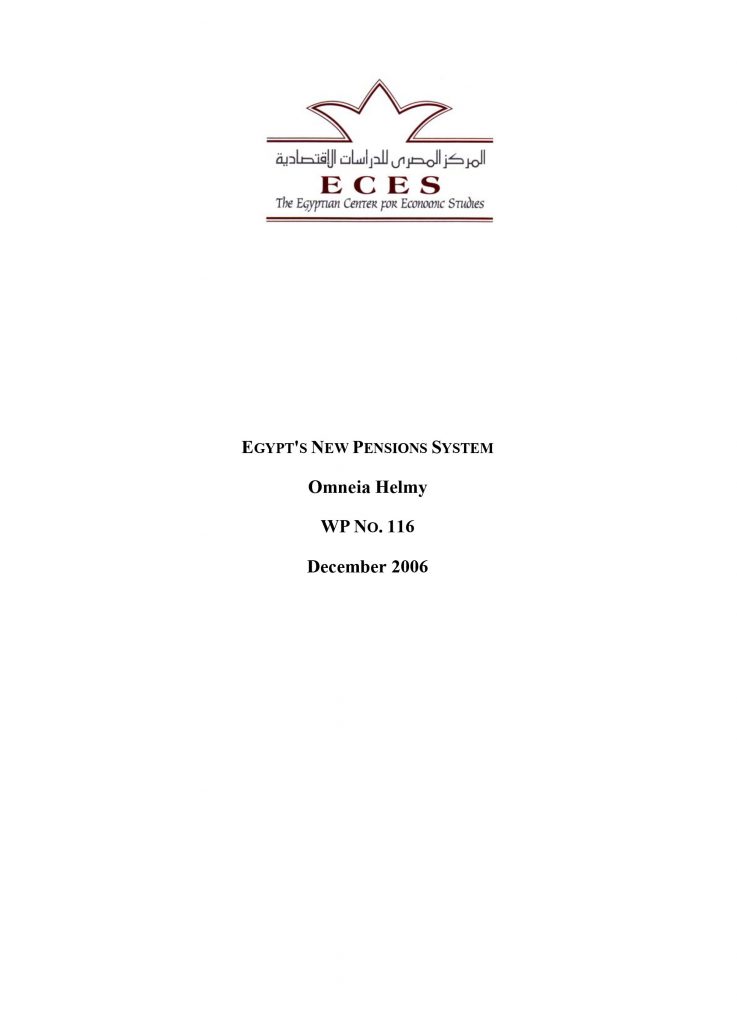Abstract:
The Egyptian government has recently outlined its vision for a new pension system and highlighted its proposed features. The purpose of this paper is to analyze the proposed system and give an ex ante assessment of its expected results in light of international experience. The paper finds out that the gradual implementation of the system would help reduce the burden on the treasury, achieve fiscal sustainability, maintain the role of the state in income distribution, enhance economic efficiency, and develop the capital market. However, the paper argues that the proposed system would also transfer the burden of risk management from the government to individuals, although the former is more capable of managing such risks.
To ensure maximum benefits from implementing the proposed system, the paper underscores the importance of aligning the maximum monthly contribution with the average monthly wage in the economy, linking the rate of return on pension funds with the wage growth rate, and putting in place an automatic mechanism to preserve the real value of pensions. As for reducing the risks to individuals, the paper stresses the role of the state in establishing the appropriate rules and regulations governing the investment of funds in the capital market, taking measures to reduce the accompanying administrative costs, and finally ensuring more equitable income distribution.

Egypt’s New Pensions System
12-12-2006
Author(s): Omneia Helmy
Publication Number: ECES-WP116-E
